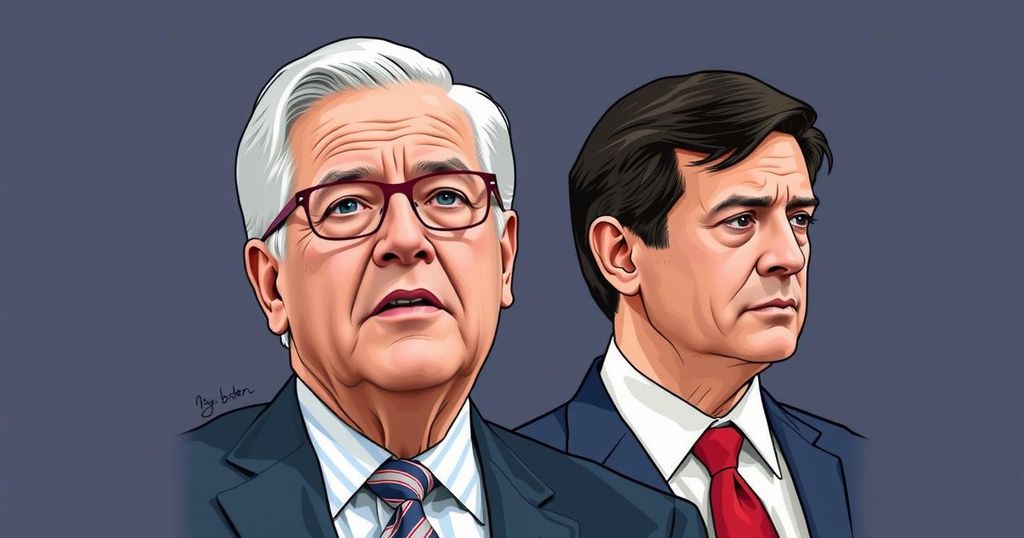This article analyses the parallels between the presidencies of Jimmy Carter and Joe Biden, highlighting the persistent challenges they faced, including economic instability, international crises, and public distrust in government institutions. Despite the significant time gap between their terms, both leaders navigated similar difficulties that reflect enduring political patterns in the United States.
Reflecting on the parallels between the presidencies of Jimmy Carter and Joe Biden reveals striking similarities in the challenges they faced. Both leaders navigated crises of confidence amidst economic turmoil and geopolitical strife. Issues such as inflation, foreign conflict, and a lack of trust in government plagued Carter in the late 1970s, and similar dilemmas confront Biden today. Despite the passage of time, the essence of these challenges—ranging from energy crises to foreign relations—remains remarkably consistent.
During Carter’s presidency, a major focus was the economy, which suffered from fluctuations in inflation and energy shortages. Biden’s administration has also encountered inflation, though job growth has mitigated some economic pressures. The geopolitical landscape has seen both presidents dealing with regional aggression, notably Carter’s struggles with Iran and Biden’s challenges regarding Afghanistan and Ukraine.
Carter’s diplomatic achievements, particularly the Camp David Accords, were overshadowed by crises like the Iranian hostage situation, illustrating the limits of presidential power. Biden has encountered similar frustrations, including the misunderstood withdrawal from Afghanistan and the ongoing conflicts in the Middle East.
Moreover, both leaders faced significant public skepticism towards governmental institutions. Carter identified this distrust as a “crisis of confidence,” a term that aptly applies to Biden’s administration as well. The lack of public faith in government remains a critical issue across decades, exacerbated by political polarization and crises that linger today.
Furthermore, the international stage poses both past and present challenges. Carter’s decision to normalize relations with China has led to rising tensions that Biden now navigates with an ascendant Beijing, reflecting ongoing geopolitical rivalries established decades prior.
Overall, the challenges faced by Carter and Biden highlight persistent issues in American leadership, emphasizing that while leaders may change, the complexities of geopolitical and domestic governance often remain unchanged. As both presidents navigated their respective tumultuous times, the historical context offers insight into the cyclical nature of political challenges in the United States.
The article explores the shared challenges experienced by former President Jimmy Carter and current President Joe Biden. Despite the significant time gap between their presidencies, the issues they confronted, such as economic instability, geopolitical tensions, and public distrust in government, showcase a remarkable continuity in American political history. This background places their experiences in context, illustrating how challenges evolve yet remain entrenched within the fabric of governance.
In conclusion, the presidencies of Jimmy Carter and Joe Biden serve as reflective examples of the cyclical nature of political crises. Both leaders faced daunting economic and geopolitical challenges that shaped their administrations and contributed to public disillusionment with government institutions. Their similarities underscore the persistent relevance of historical context in understanding contemporary political dilemmas, reinforcing the notion that while leaders may change, the underlying issues often endure across decades.
Original Source: www.bbc.com






